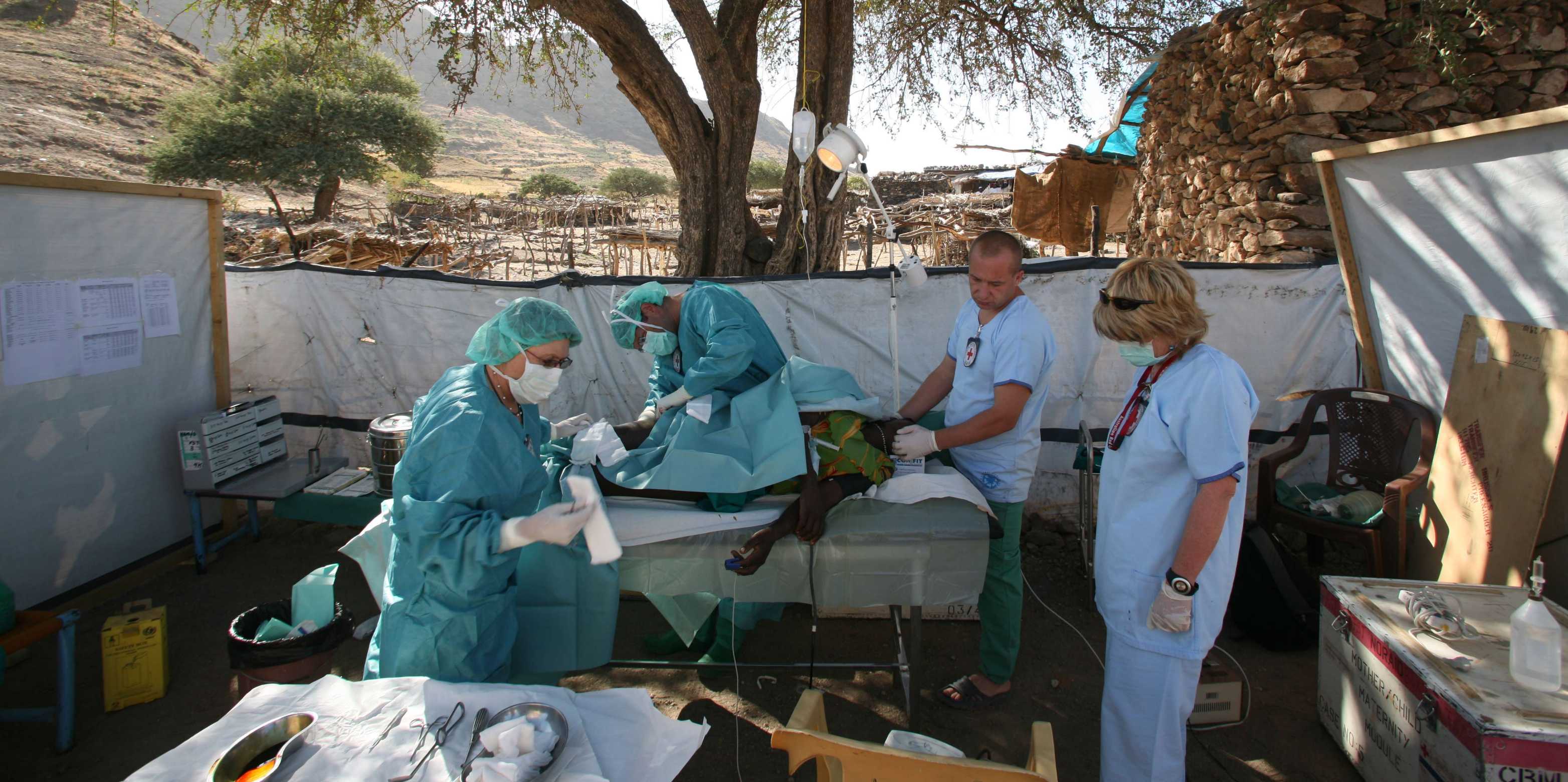
HumOSCM Lab saves International Committee of the Red Cross millions
The International Commitee of the Red Cross (ICRC), helping people in need all over the world, has a vast logistics operation. The HumOSCM Lab, in collaboration with the ICRC, has developed a tool that helps the ICRC organize their supply chain. First deployed in 2023, this has saved the ICRC millions of swiss francs already.
The International Committee of the Red Cross (ICRC) faces significant challenges in efficiently delivering medical supplies to conflict zones worldwide. However, a collaborative effort with the HumOSCM Lab from the Chair of Logistics Management, has led to the development of innovative solutions to improve logistics. By implementing an inventory calculator and planning process, the ICRC has achieved substantial cost savings and enhanced the quality of medical care in crisis areas.
The inventory calculator revolutionized the ICRC's approach to supply chain management. Before introducing the tool, logistics planners at the ICRC relied on inventory targets and average annual requirements. However, this approach could not account for how strong demand or delivery times might fluctuate. In critically affected areas such as conflict zones where the IRCC operates, these fluctuations can have severe consequences such as stock-outs of medical supplies.
“Thanks to our collaboration with ETH Zurich, we’ve discovered how strongly demand and delivery times fluctuate for different products. We were able to use the inventory calculator to determine the optimum balance between the desired supply level, and the required stock level for each product”Samah El Sayed, ICRC
In 2023, the ICRC rolled out the developed tool across twelve locations, spanning Africa (Nigeria, Central African Republic, Nairobi, South Sudan, Ethiopia), the Middle East (Yemen, Lebanon, Afghanistan), and Ukraine. This initiative effectively trimmed medical inventory by 24%, resulting in a substantial savings of 3.6 million Swiss francs in potential obsolescence costs, all while maintaining service quality.
Integration of the planning tool into existing logistics software has enabled the ICRC to establish transparent and reliable supply chains.
While maintaining a high service level for items with consistent demand and delivery times, the ICRC has also adjusted its approach for goods with fluctuating demand. This strategic shift ensures efficient resource allocation within budget constraints, ultimately benefiting both the ICRC and the healthcare facilities it supports.
Beyond financial savings, the collaboration between the ICRC and ETH Zurich has fostered better coordination between logistics specialists and healthcare teams on the ground. By improving supply reliability, the ICRC incentivizes healthcare facilities to enhance their forecasting, thus facilitating more effective logistics planning. The success of this partnership holds promise for other humanitarian organizations facing similar challenges, offering a blueprint for optimizing supply chain management in crisis situations worldwide.